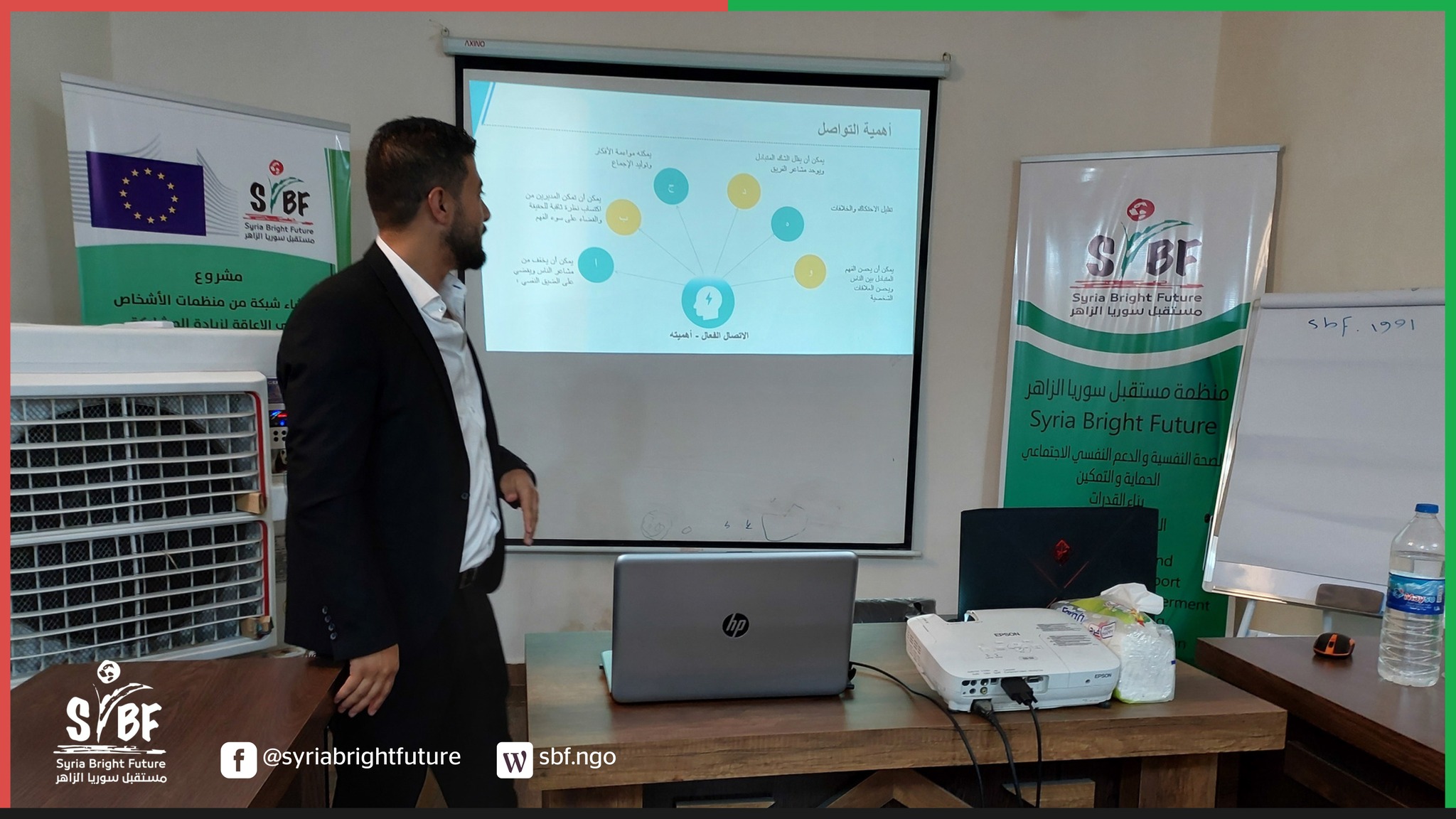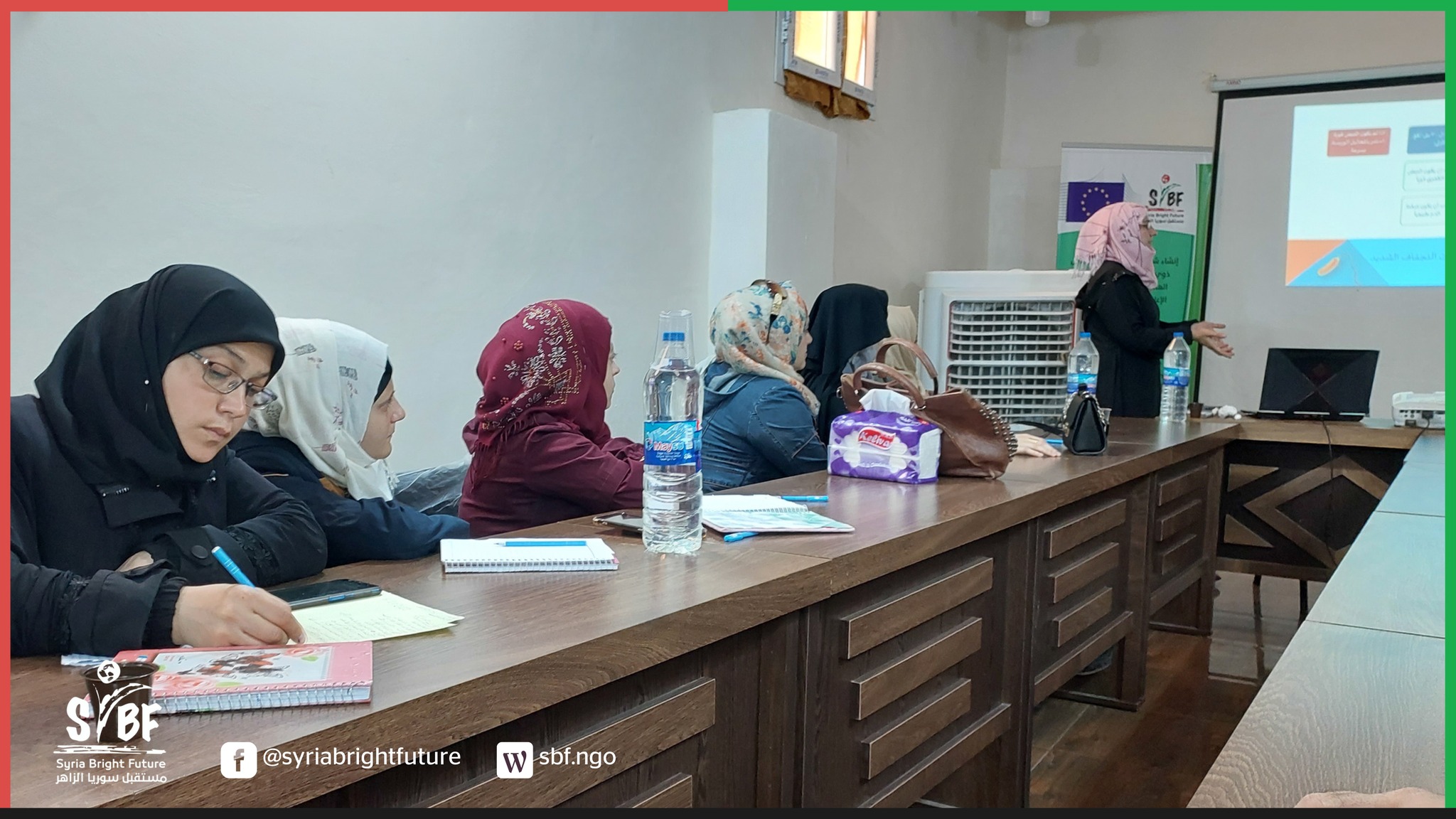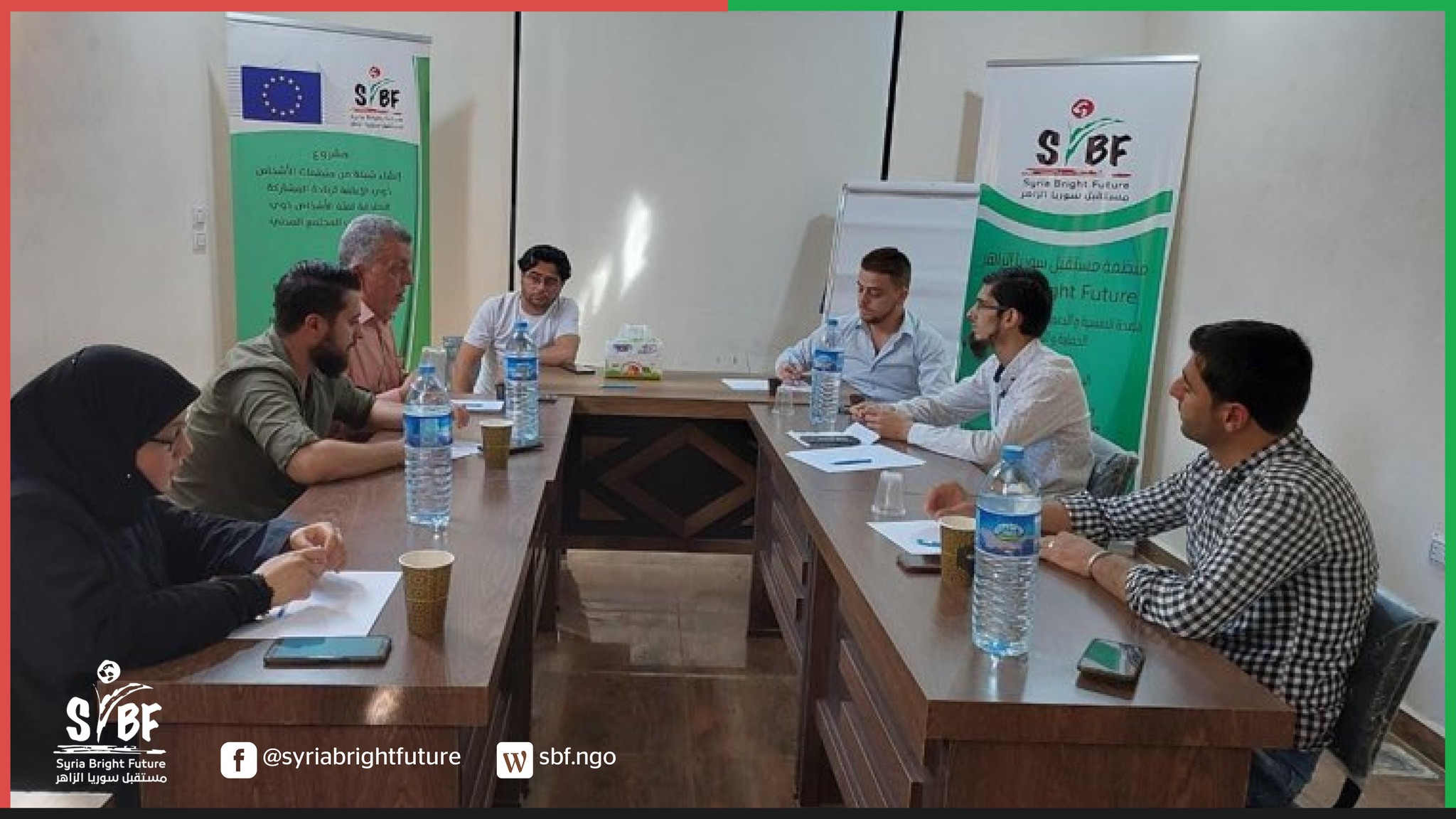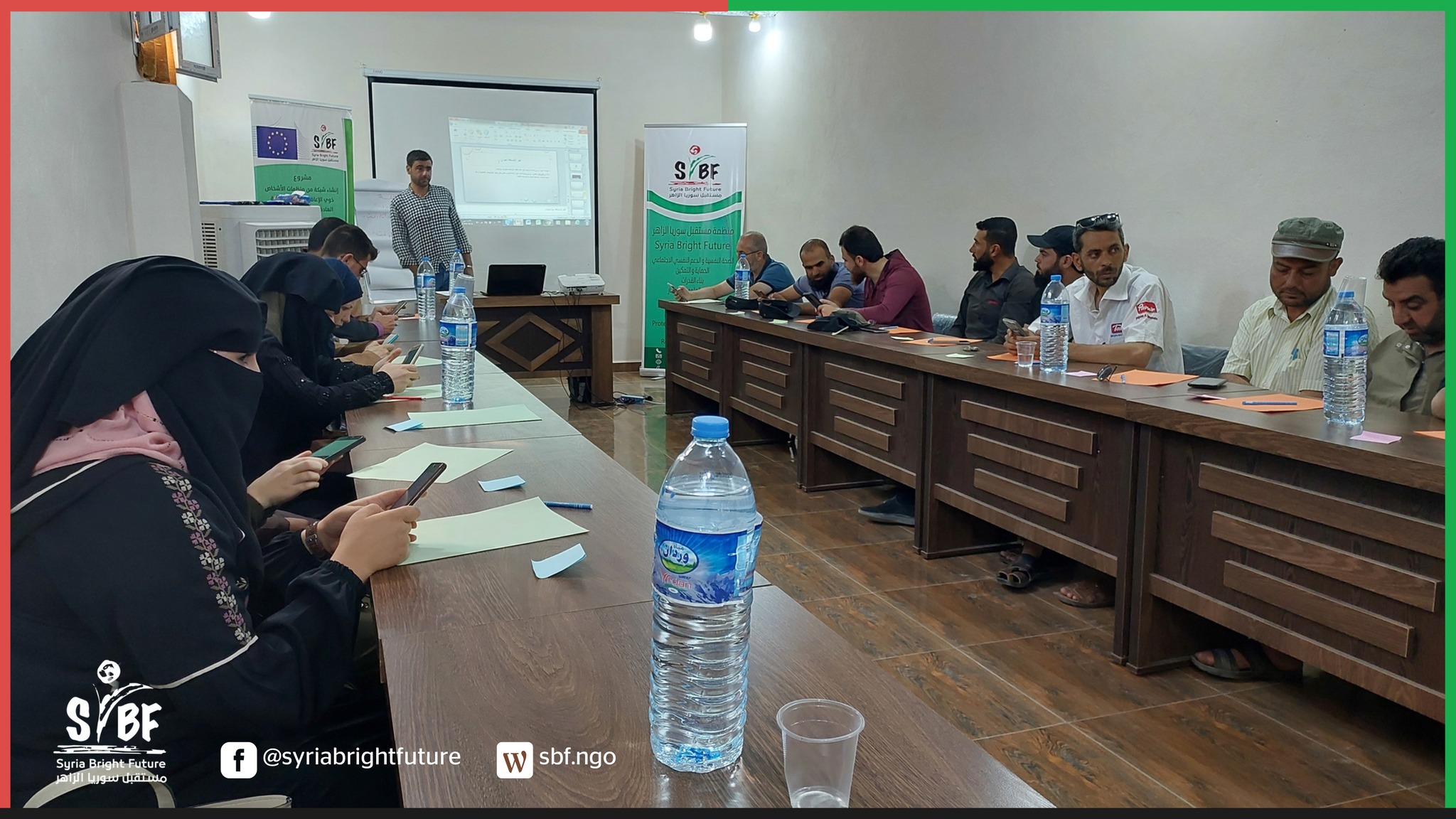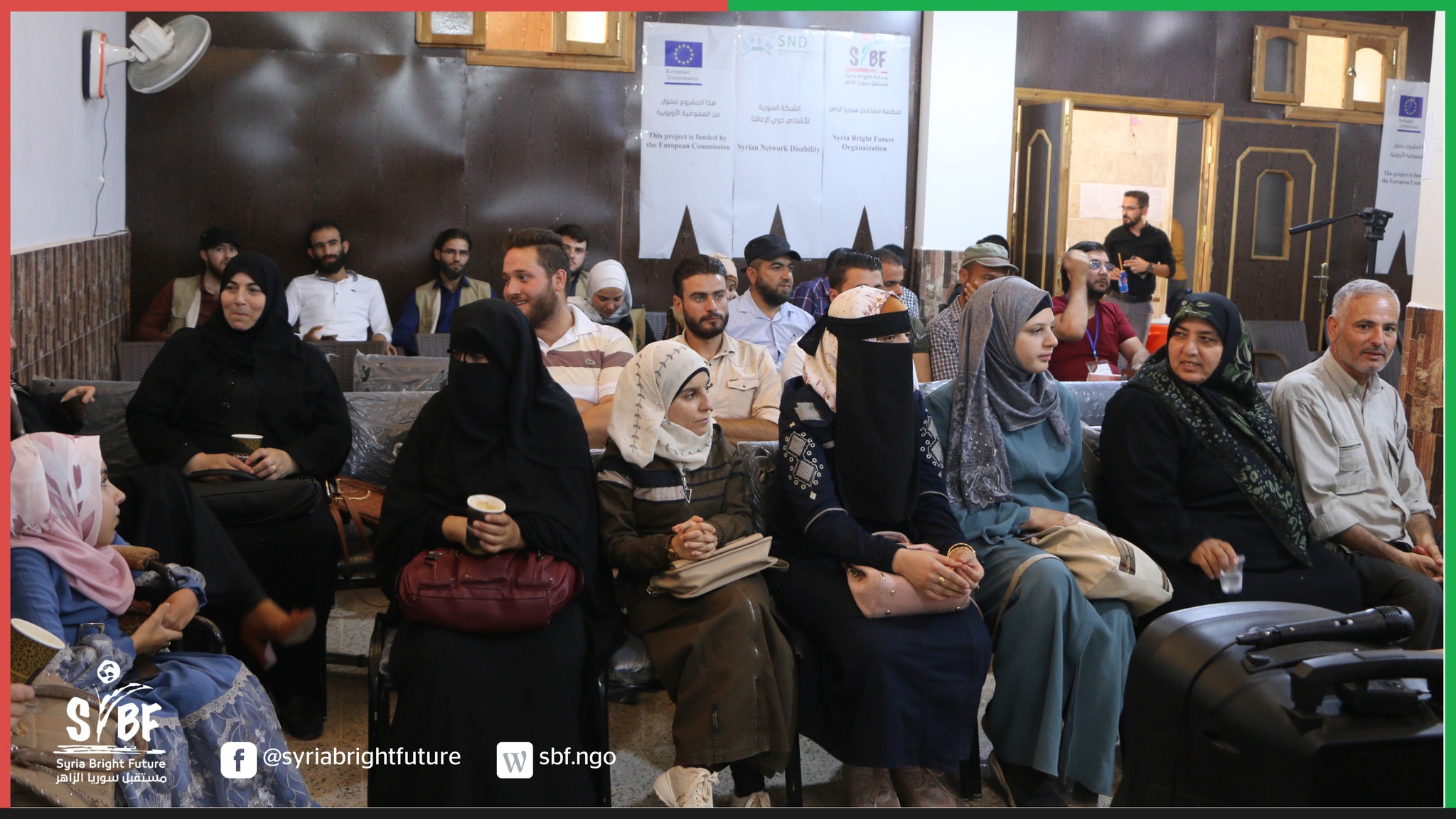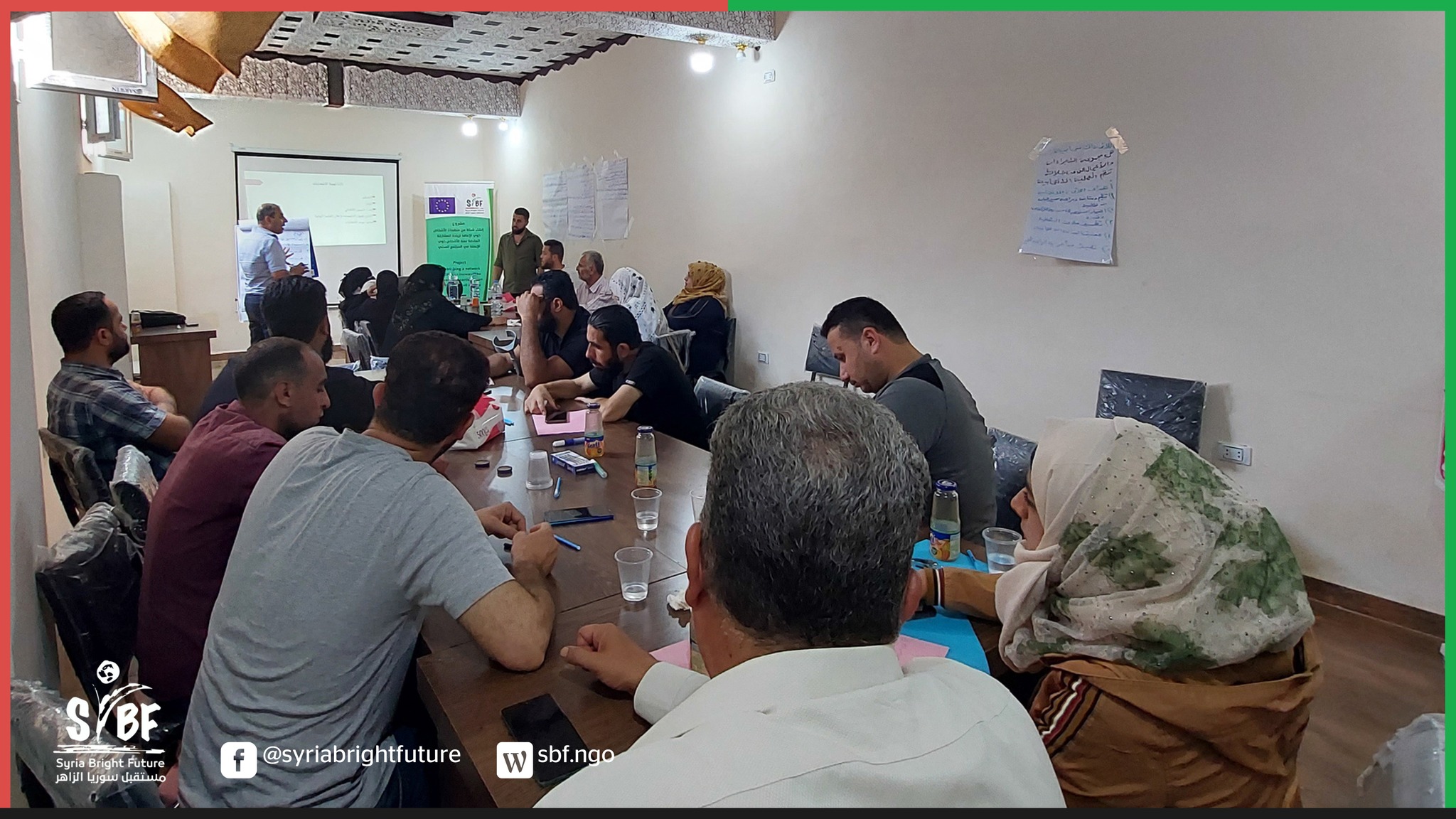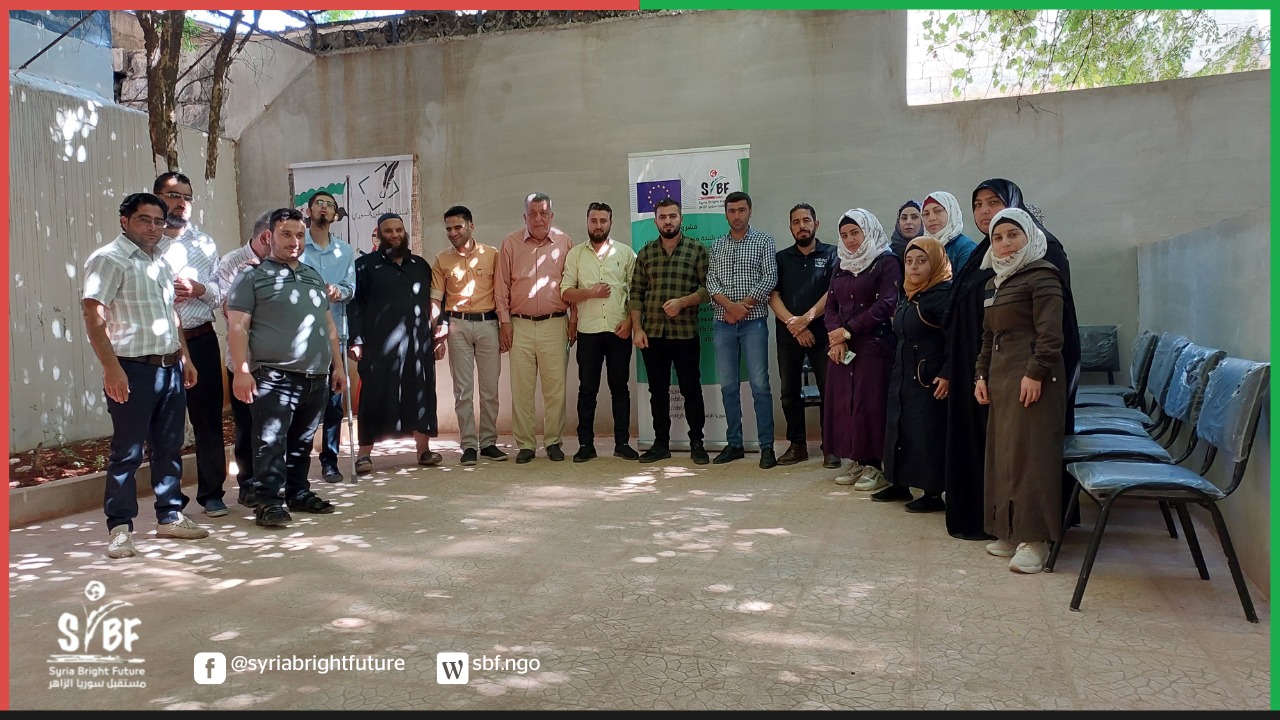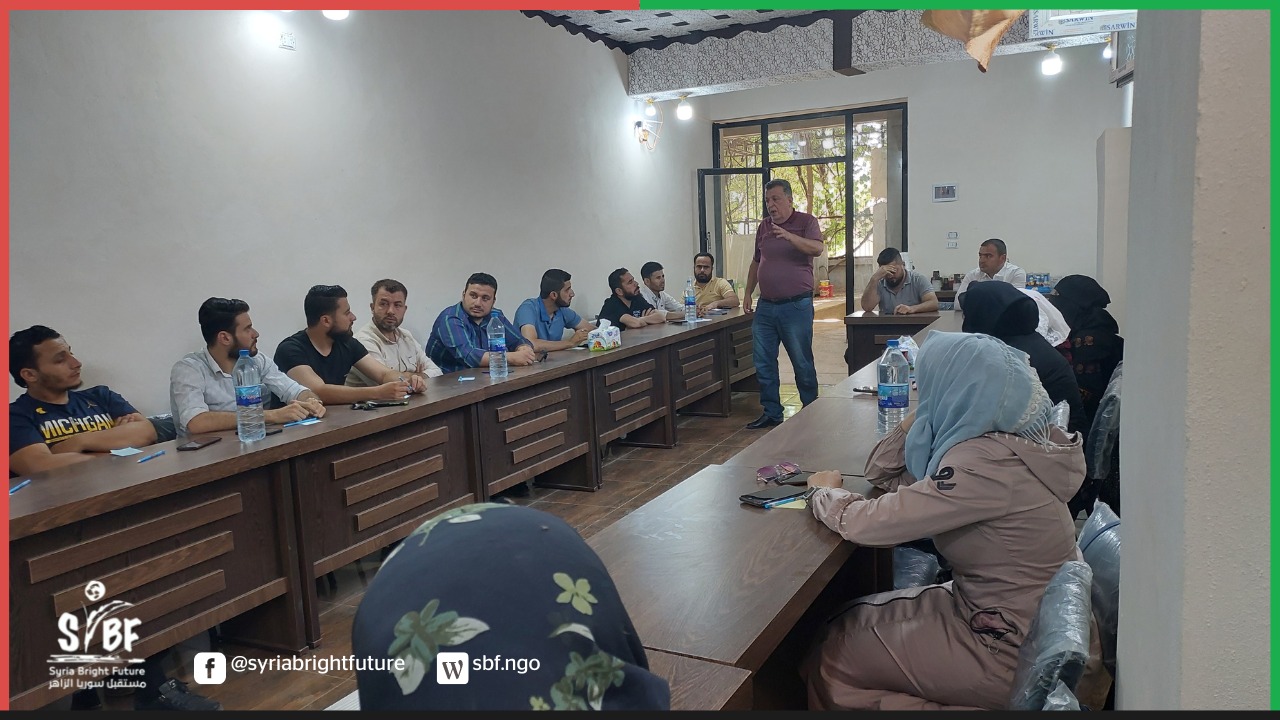Phase one:
1.1- Mapping of existing OPDs and their activities. Communicating with them, assessing their capacity, needs and attitudes for participation in the network. Record general information about how many DPOs exist in NW Syria, where they are located, what they do, what services they are able to provide, and whom they can reach.
1.2- Selecting members of the network: SBF has already reached 6 OPDs and negotiated with them about being candidates to be part of the network. The plan is to complete the number up to (10) OPDs who will be the members of the proposed network.
1.3 – Building capacities of OPDs with coaching & mentoring. This will help them to be prepared to acquire essential knowledge and skills and attitudes to be active members in the network, and the purpose of the training is to know each other and to be familiar with working as a network.
The activities in this phase are very important to ensure the success of the project. Forming a network or coalition in a complex context like in NW Syria is a difficult task. There should be a preparation time before starting the actual formation of the network. For that this first phase will help choosing the OPDs who have the right structure, capacity and most importantly the right attitudes, and strong commitment to be part of the network
Phase Two: Six Months
2.1- Establishing the network with TOR, after spending enough time in meeting and discussing the TOR with the members. This activity is the core of the project, and will build on the previous preparatory phase.
2.2- Developing a website and Facebook page for the network. as a media outlet for networks to reach for their members and all others stakeholders. This will help promote the network and create momentum in the context.
2.3- Advanced capacity building of the network members. SBF will train network members on needed skills, the most important of which is how to act as a network not only as individual organizations or persons. This will help them shift their understanding or focus from individuality of their organizations to a bigger movement of people with disabilities.
2.4- proclamation of the network through a conference (as the situation will allow). It can be physical or (online). There will be an invitation for humanitarian actors, civil society actors, local councils, and other concerned stakeholders.
Phase Three:
After that SBF will help the network in doing some activities as a network under a close supervision from SBF to ensure that they are able to implement in an effective, efficient and sustainable way. and This will include connecting them with health directorates, clusters & UN agencies. the activities will be:
3.1- Providing one grant to the network to design a project with some activities and supervising the implementation of the network. The network will choose some activities to be implemented. These can include but not limited to, awareness raising about disabilities targeting humanitarian and civil actors. advocacy campaigns, small scale assessments by surveys, KIIs and FGDs, and training activities and small-scale services provisions. The activities will be decided later by the network itself and there will be a “granting process “for them so they can develop a concept note and a proposal.
3.2- Facilitating meetings among network member organizations, and between them and NGOs, local authorities, humanitarian and civil society actors, health directorates, and clusters & UN agencies. Signing MoUs and agreements will be sought.
